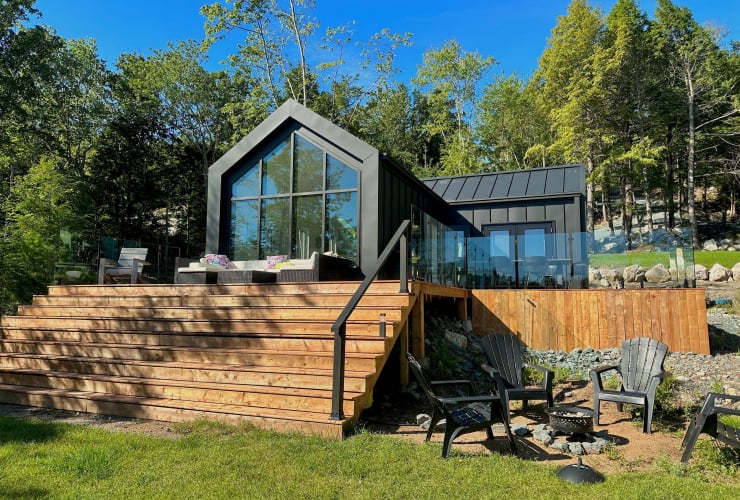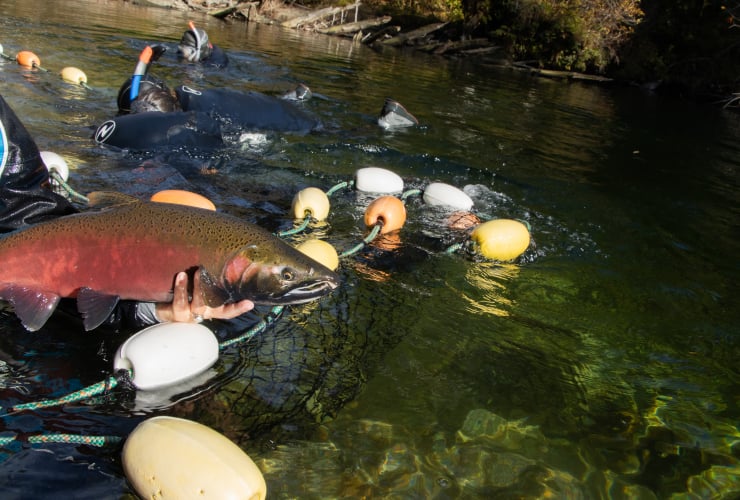Earth Day is normally a day to turn off lights for an hour and reflect on our planet’s beauty, but not for a new project at the University of British Columbia.
Heavy Metal wants people to think about the critical minerals that are unseen but needed to power our green industrial revolution. The interdisciplinary project led by Philippe Tortell explores the past, present and future of critical minerals through music, essays and visual art. It brings together scientists, writers, artists and Indigenous leaders.
Tahltan elder Allen Edzerza is one of the Indigenous leaders who helped develop the project.
Six or seven years ago, Edzerza was doing survey work with Tortell’s colleague at UBC in Tahltan territory. While in the field, they spoke about the need for Indigenous Peoples to have stronger leadership in the critical minerals sector. However, most First Nations didn’t have the capacity to fully participate.
Edzerza made it his mission to work with UBC to encourage more Indigenous youth to enter geological studies to prepare them for work in the mineral sector, he told Canada’s National Observer. He wanted young people in the field to lead discussions and gain influence within the industry.
That push helped lay the foundation for the Heavy Metal project. Edzerza recognized that critical minerals were set to become the next gold rush, “and the original gold rush was not very favourable to our Indigenous community,” Edzerza said.
The project began in earnest when Tortell became head of the Department of Earth, Ocean and Atmospheric Sciences. He was hungry for an interdisciplinary project that would draw people from various departments into new collaborations.
He found a diversity of researchers at the university who worked on critical minerals. From engineering to science to humanities, it seemed everyone's research on mining was happening in every nook of the university.
It’s no surprise, Tortell explained. Vancouver is one of the global hubs for the mining sector, he said. And Canada houses about 60 per cent of the world’s mining companies, according to CBC Ideas.
Edzerza and Tortell wanted the future of mining to evolve differently, in a way that is sustainable and reduces harm to the environment. Sustainable mining was practised for centuries by Indigenous Peoples, although on a smaller scale than modern industry.
But pushing mining full speed ahead toward infinite extraction is too dangerous, Tortell believes.
Instead, Tortell believes the 21st-century answer lies in a circular economy model where minerals are recycled. At the moment, even statistics on recycling metals are “really quite poor.”
The project will culminate in “The Heavy Metal Suite,” a multimedia concert in Vancouver on Monday that explores humanity’s relationship with Earth’s critical minerals.
The piece presents eight songs representing eight minerals, including zinc, copper, gold, lithium and others. Each mineral is represented by a different composer based in a country with a strong critical mineral sector, including China, the United States and Australia.
Patrick Carrabré, a Métis composer and professor at UBC’s School of Music, is Canada’s representative. He’s kicking off the concert with the first piece titled “Diloo,” or water in Michif.
Water is not technically a rare earth mineral, however, it is needed in the mining process and falls victim to mining pollution, Carrabré told Canada’s National Observer.
“And so, it’s an opportunity for me to just draw attention to water in this broader context,” he said, reflecting on the ways water nourishes, sustains and is commodified through extractive industries.
Tesla is an example Tortell points to when discussing the significance of water in mining and the green transition. One Tesla vehicle needs 50 kilograms of lithium, which requires about 100,000 litres of water to process, Tortell said. It doesn’t help that the lithium is often mined in the northern Atacama Desert in Chile, one of the driest places in the world, he noted.
“[Heavy Metal] gets us to think about the hidden or the embedded environmental costs of these things,” he explained.
“There is no free lunch.”
It was a little more than 50
It was a little more than 50 years ago that high school students from around Vancouver played hooky and walked from their schools to the US consulate downtown; that, in protest of the planned, underground nuclear rest on Amchitka Island in Alaska. I was there. The test went ahead. Greenpeace was born. That generation, and those since, have presided over the evolution of Canadian society to where we are now.
https://nvdatabase.swarthmore.edu/content/canadians-campaign-against-nuc...
Joni Mitchell released Big Yellow Taxi -- all two minutes, fifteen seconds! -- around the same time, in 1970. She was undoubtedly cognizant of the attention span of the average radio programmer, and probably the average industrial-age human. Everyone and their dog has covered it. And yet.
More recently, David Attenborough has become, I think it's fair to say, beloved in many parts of the English-speaking world for his works capturing the wonder of our Blue Dot and everything that exists on it. Undoubtedly, he has done this in hopes of it being a call to action. I think his collected works may well be looked upon as a beautiful elegy.
Photographer Edward Burtynsky has captured remarkably beautiful perspectives of the scars our industrial society has left upon the planet.
James Cameron has created his Avatar series, to mixed reviews from ecologists.
Various other artists have created works of music, visual media and other forms as odes to the natural world.
https://www.google.com/search?q=artistic+works+created+for+ecological+aw...
https://www.google.com/search?q=music+created+for+ecological+awareness
I have yet to see evidence that any of this creative output has turned the tide. Does swapping an ICE vehicle for an EV represent the limit of what an average Canadian will do for the biosphere? "Dad, can you drive me to the airport in your Tesla? You know the bus service in our spaghetti-street suburb is terrible."
I don't think our predicament exists for want of art.







Comments